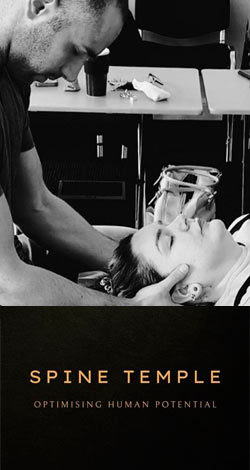FERTILITY CLINIC ‘GINEFIV’ CELEBRATES INTERNATIONAL FERTILITY CARE MONTH IN JUNE BY EMPOWERING SPANISH WOMEN TO UNDERSTAND THEIR FERTILITY.
Surprising findings from Ginefiv’s 8th “Women’s Fertility Knowledge and Habits” study show that 51% of Spanish women do not know what biological factors determine their fertility. Nearly half of these women are unfamiliar with the concept of ovarian reserve and its pivotal role in achieving pregnancy. Despite this knowledge gap, the study reveals that 59% of respondents express a desire to have a child soon, with over half actively attempting to conceive.
Ginefiv, a leading fertility clinic operating in Madrid, Barcelona, Getafe, and San Sebastían de los Reyes, specialises in assisting women with their fertility journey, offering services such as IVF, artificial insemination, and egg donation. In support of International Fertility Care Month in June, Ginefiv is offering free tests throughout the month to assess the ovarian reserve and reproductive probabilities of women aspiring to embark on the journey of motherhood.
The World Health Organisation (WHO) revealed in April that one out of every six individuals experiences infertility. Dr. Joaquín Llácer, the medical director of assisted reproduction clinics, emphasises that while age is often linked to difficulties in achieving pregnancy, the underlying biological causes and the importance of assessing ovarian reserve for effective family planning are not widely known. Ovarian reserve refers to the ovaries’ ability to produce eggs of sufficient quality for successful pregnancy. The key challenge is that the quantity of gametes significantly decreases after the age of 35. However, Dr. Llácer asserts that a straightforward test, such as the analysis of anti-Müllerian hormone (AMH), can determine a woman’s ovarian reserve and assist her in making informed decisions about her reproductive future.
46% of women are unfamiliar with the process of oocyte vitrification. Additionally, 26% of women have heard or come across the term but lack detailed information about the technique. However, oocyte vitrification plays a crucial role in family planning by preserving eggs of the same quality as the day they were retrieved. The medical director of Ginefic explains that oocyte vitrification involves the freezing of eggs for women who wish to preserve their fertility due to various reasons. The process entails ovarian stimulation using hormone treatments, followed by egg extraction through an ovarian puncture performed under anaesthesia. This procedure is quick, simple, and safe.
Overall, regular visits to a gynaecologist for annual check-ups are crucial for maintaining fertility and good health. These check-ups provide an opportunity to evaluate any potential factors that could negatively impact fertility and a woman’s future plans of motherhood. Despite this, 34% of women admit to delaying their gynaecological check-ups by more than a year. It is during these routine examinations that healthcare professionals can identify and address issues related to fertility, hence their importance.
Furthermore, it is necessary to complement these good practices with self-care and healthy habits. This includes maintaining a balanced diet rich in fruits and vegetables, engaging in regular moderate-intensity exercise, and eliminating harmful habits such as alcohol and tobacco consumption, as they have been shown to directly impact reproductive capacity. By prioritising regular gynaecological check-ups and adopting healthy lifestyle choices, women can take proactive steps towards safeguarding their fertility and overall well-being.
Report by Melissa McCrow
Article copyright ’24/7 Valencia’
Related Post
This site uses Akismet to reduce spam. Learn how your comment data is processed.


























Leave a comment